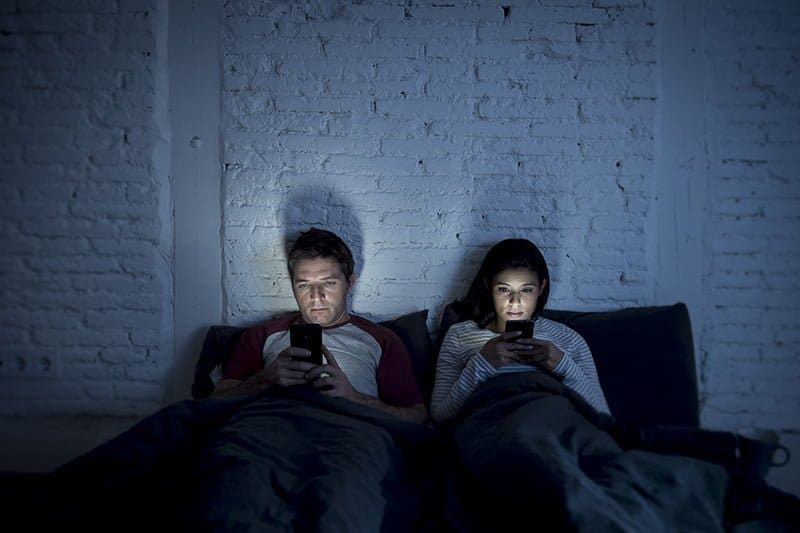Technology use is impacting sleep health, and ultimately our overall wellbeing, with many people routinely using tablets and phones in bed, before falling asleep and again if they wake during the night.
The (NSF) latest Sleep Health Index® (SHI) finds significant associations between technology use in bed and sleep health. Forty-eight percent of American adults reported using a device like a computer, tablet, or smartphone in bed before trying to go to sleep. These people averaged two points lower on the overall SHI (75 vs. 77, on a 1 to 100 scale) and five points lower on the sleep quality sub index (65 vs. 70) than those who refrained from technology use in bed.
More alarming is the 21% of American adults (representing 52 million people) who reported awakening from sleep and using an electronic device before trying to go back to sleep at least once in the past seven days. These individuals averaged 10 points lower for overall sleep health and 13 points lower on the sleep quality sub index than others (68 vs. 78, and 57 vs. 70, respectively). Additionally, about 43% of these people reported sending a text or email after awakening. This means that 9% of American adults made the decision to engage with technology when awakening in the middle of the night, rather than trying to fall back asleep. “The SHI shows that bedtime electronics use is a problem. We can’t know if this use of tech is a cause of poor sleep health or a result of it. It is clear, however, that if you are having trouble sleeping, you should stay away from using technology while in bed,” said David Cloud, CEO of the National Sleep Foundation.
Overall, the nation’s sleep health score is at 76, in line with its average since the quarterly SHI began in the first quarter of 2016:
| Sleep Health Index Scores by Quarter | ||||
| Year | Q1 | Q2 | Q3 | Q4 |
| 2017 | 75 | 75 | 76 | — |
| 2016 | 76 | 76 | 76 | 75 |
In contrast, the sleep duration sub index score reached a new high of 79, three points above how the nation scored last quarter. The disordered sleep sub index score remains the highest of all subscales at 82, and is unchanged from recent quarterly findings, likely due to a low incidence of disordered sleep. The sleep quality sub index score, however, remains the lowest among the sub indices at 68, in line with its respective average.
Notably, this SHI also addressed overall health and stress, finding both to be strong predictors of our sleep health. Those who reported better overall health achieved significantly higher scores on the SHI overall and on the sleep quality sub index than those with fair or poor health (83 vs. 64, and 78 vs. 48, respectively). Regarding stress, those who reported feeling severe or very severe stress reflected significantly worse overall SHI and sleep quality sub index scores than those with little or no stress (61 vs. 80, and 49 vs. 75, respectively).
Doctor. Joseph Ojile, Chair of the Board of Directors of the National Sleep Foundation stated that “as we continue to advocate for sleep as part of our health-centric initiatives, these data show both usual and unusual stressors may contribute to sleep disruption. This information reflects an opportunity for increased discussion between physicians and the public regarding the benefits of stress reduction and a good night’s sleep in overall health.”
If you are wondering what you are missing out when your sleep suffers, the check out these benefits of sleeping well.





